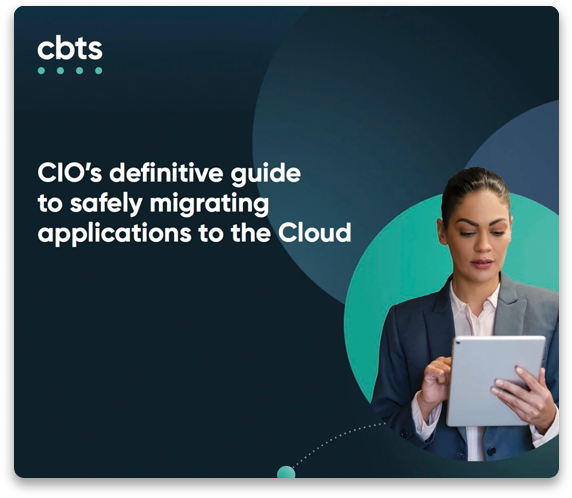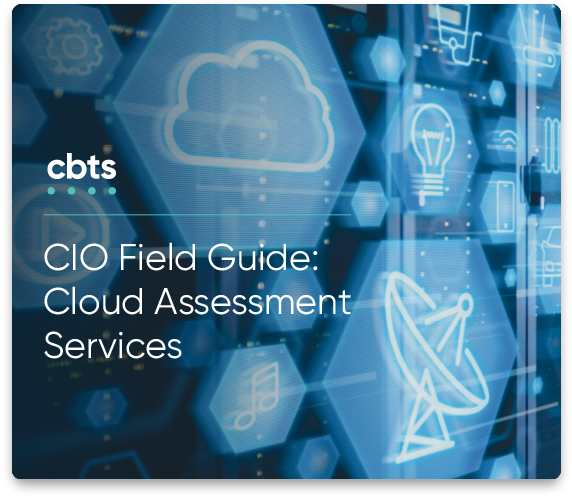
IT leaders today are caught in a balancing act. On one hand, they are tasked with modernizing infrastructure, keeping systems secure, and driving innovation. On the other hand, they must rein in costs, manage legacy environments, and combat IT team burnout. Add in the pace of technological change and the constant barrage of security threats, and it is clear why so many CIOs, CTOs, and IT directors feel stretched thin.
That’s where the benefits of managed services providers (MSPs) come in.
Partnering with an MSP allows organizations to offload routine operations, tap into specialized expertise, and scale more efficiently. Instead of focusing resources on maintenance and firefighting, your team can devote time to strategic initiatives that differentiate your business.
Let’s break down the key benefits of managed services providers and why this kind of partnership might be the smartest move for your IT strategy.
Managed services providers bring cost control and predictability
Traditional IT spending often comes with surprises: unexpected hardware failures, emergency patching, or last-minute consulting projects. One of the most significant benefits of managed services providers is predictable pricing. For example, MSPs can replace unpredictable costs with a subscription model backed by service level agreements (SLAs).
This approach helps both CFOs and IT leaders: budgets become easier to forecast, capital expenditures shift to operating expenses, and organizations gain financial stability without compromising performance.
Access to specialized expertise
Even the most talented IT departments can’t be experts in everything. Cloud migration, zero trust security, network optimization, or DevOps automation require niche skills that can be difficult to find or train for in-house.
A key managed services provider benefit is access to teams of certified specialists across a wide range of disciplines. Whether you’re implementing SD-WAN, optimizing cloud workloads, or rolling out unified communications, you gain expertise without the cost of constant recruiting or training.
Learn more: The benefits of Managed IT Services
Stronger security and compliance
The cybersecurity landscape grows more complex every day. From ransomware and phishing attacks to compliance frameworks like HIPAA, PCI DSS, and GDPR, organizations face constant risk. Missing a single patch or failing an audit can be costly.
Another core benefit of managed services providers is proactive security. MSPs continuously monitor your environment, apply patches, and use advanced tools to detect threats early. Many also provide compliance support, helping you stay aligned with industry and regulatory requirements.
24x7x365 Monitoring and support
Cyber threats and outages don’t respect office hours. An MSP ensures that your IT environment is monitored around the clock. If something goes wrong at 2 a.m., an MSP team is on hand to detect and remediate issues.
This proactive monitoring is one of the most valuable managed services provider benefits: reduced downtime, faster response times, and a healthier work-life balance for your IT staff.
Scalability and flexibility
Business needs change quickly—whether it’s scaling to support new markets, enabling hybrid workforces, or adopting new digital tools. MSPs are designed to flex with you.
One overlooked benefit of managed services providers is the ability to expand or contract capacity quickly. That agility means your IT strategy can keep pace with business growth—without the delays or costs of building everything in-house.
A strategic partner, not just a vendor
The best MSPs don’t just manage tools—they help design roadmaps. They assess your current environment, recommend modern architectures, and guide you through migrations.
By leveraging the benefits of managed services providers, IT leaders can align technology with broader business goals, accelerate digital transformation, and focus on driving innovation.
Also Learn: Empowering enterprise IT: The future of managed services, automation, and AI
Managed services vs. professional services
It’s worth distinguishing MSPs from professional services. Professional services are typically one-off projects: a migration, an assessment, or a consultation.
Managed services, on the other hand, are ongoing. They involve continuous monitoring, management, and optimization under contract-based SLAs. Both are valuable, but the lasting managed services provider benefits come from addressing IT needs regularly to keep your environment secure, stable, and optimized long after a particular project ends.
The bottom line
Working with an MSP can help you:
- Reduce costs and increase predictability.
- Tap into specialized expertise without adding headcount.
- Strengthen security and compliance.
- Ensure 24x7x365 monitoring and faster response.
- Scale IT infrastructure in lockstep with business needs.
- Free internal teams to focus on innovation, not maintenance.
In today’s environment, IT leaders can’t afford to spend all their time “keeping the lights on.” By leveraging the benefits of MSPs, you gain the freedom to focus on what matters most: building the future of your business.
At CBTS, we deliver managed services designed to meet you where you are and take your IT strategy where it needs to go. Contact us today to learn more about how our solutions can support your goals.





















